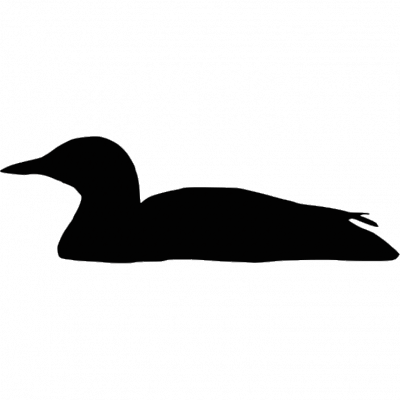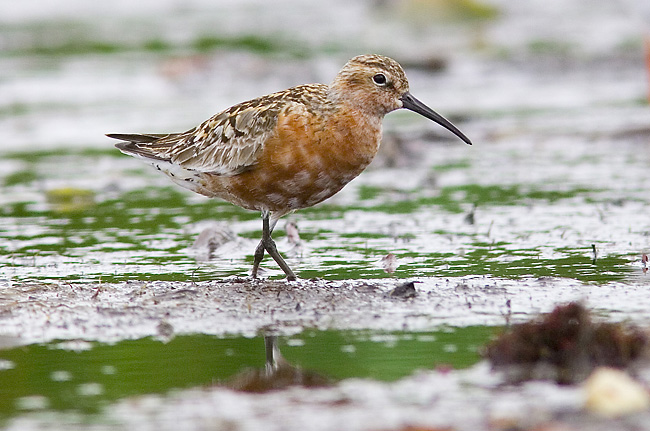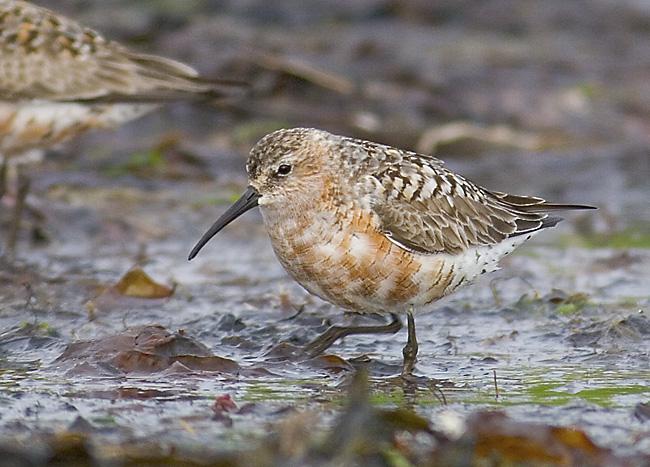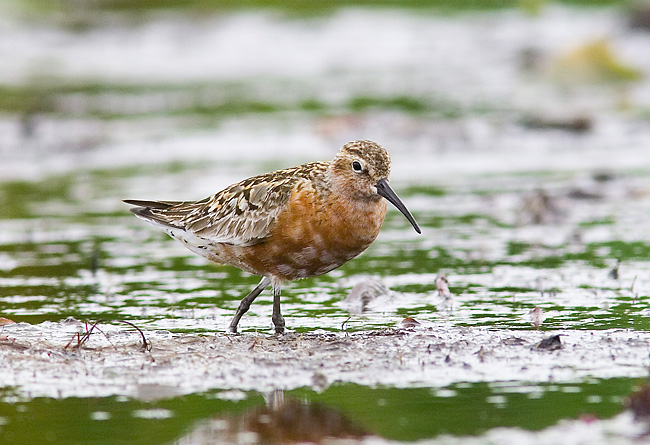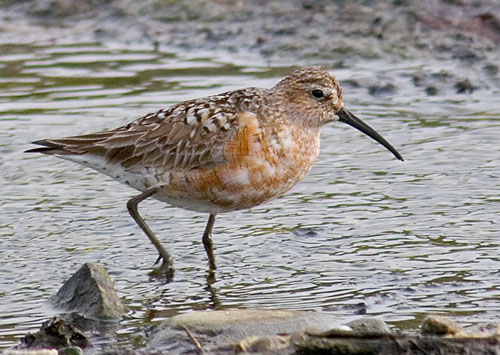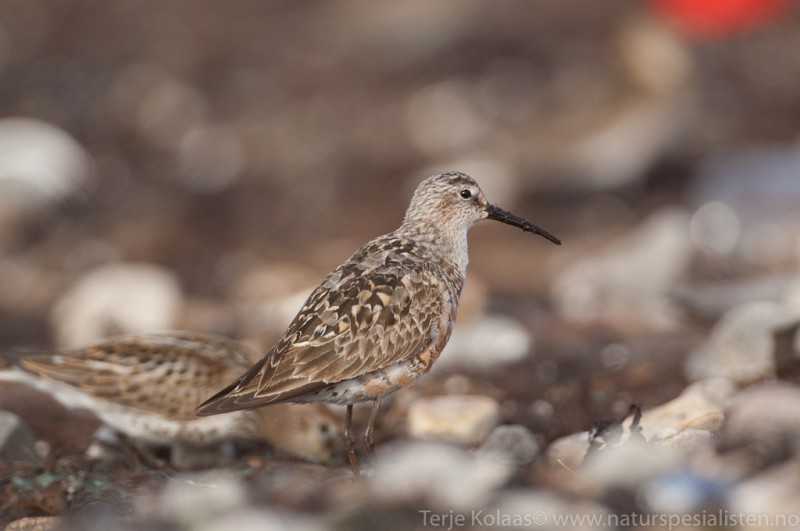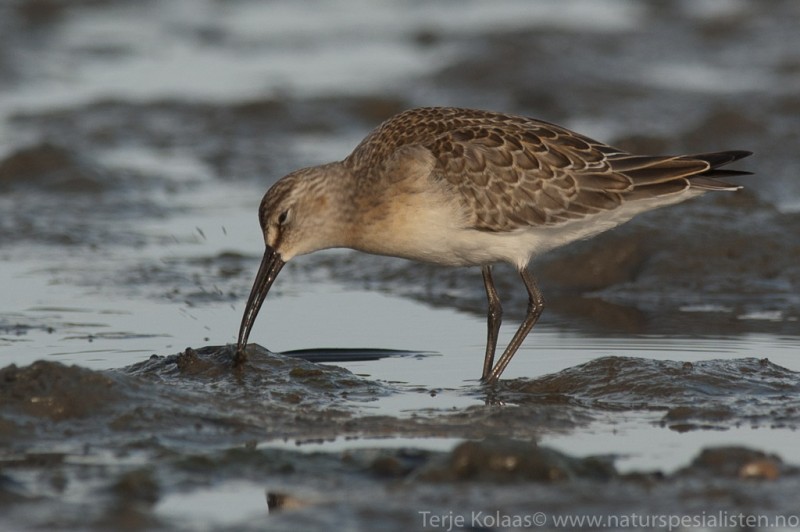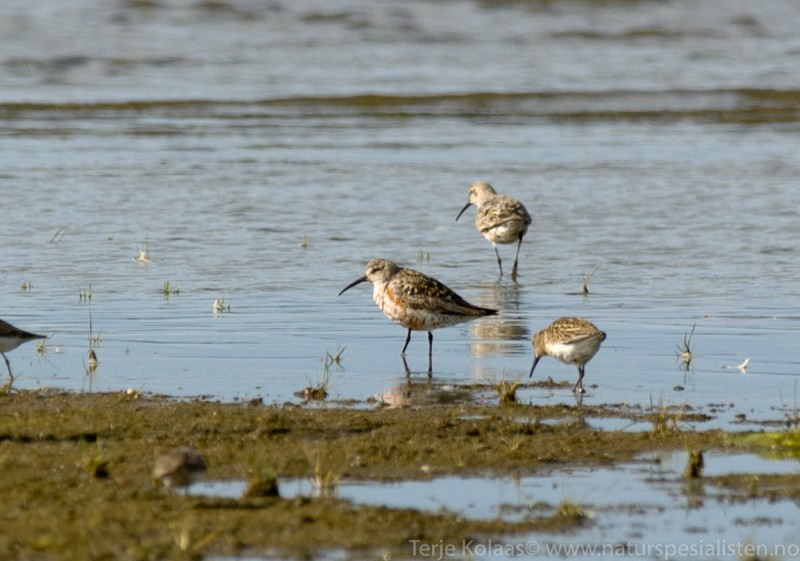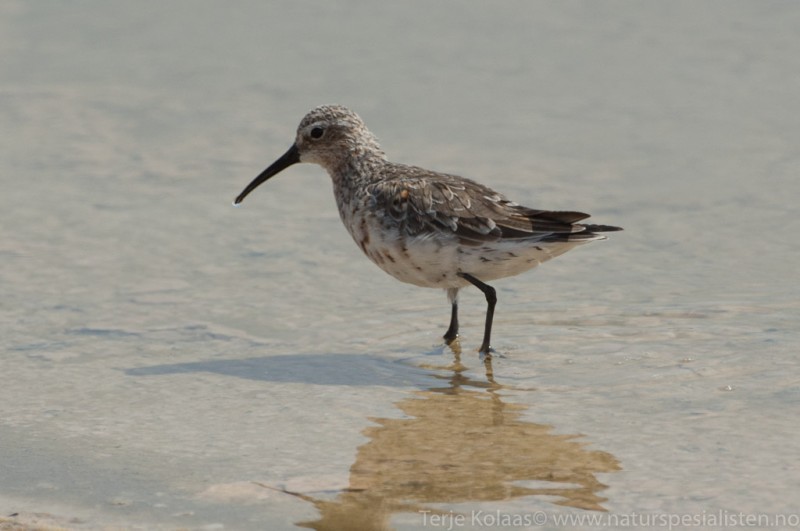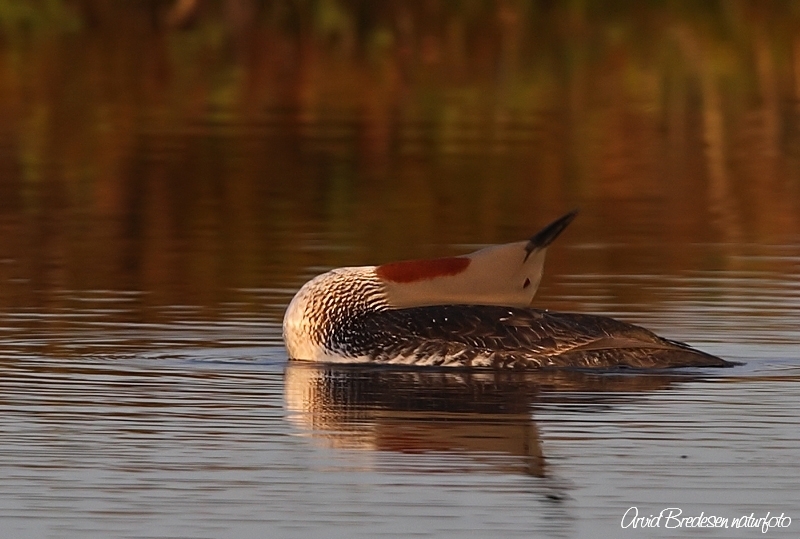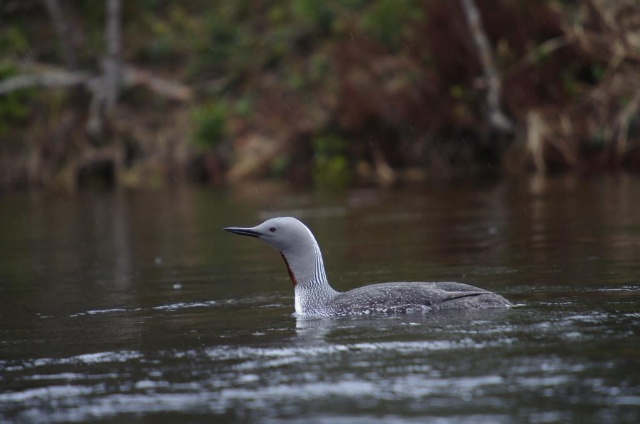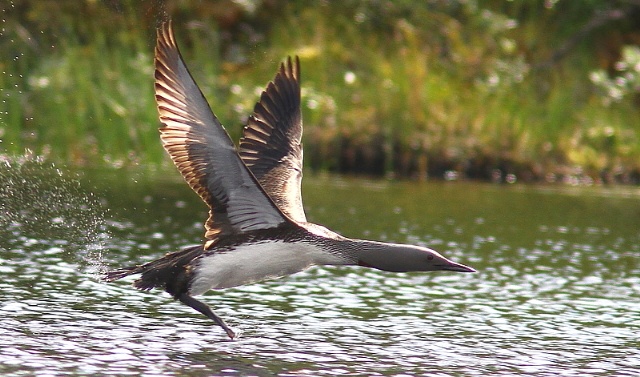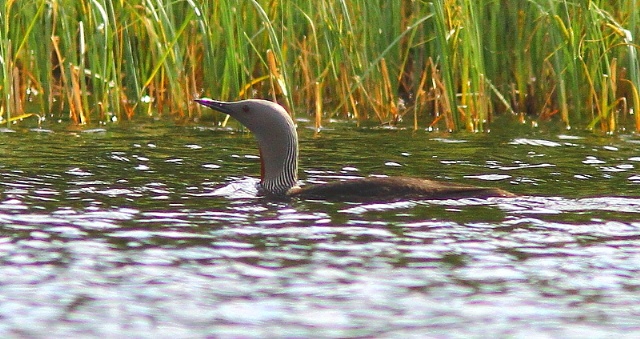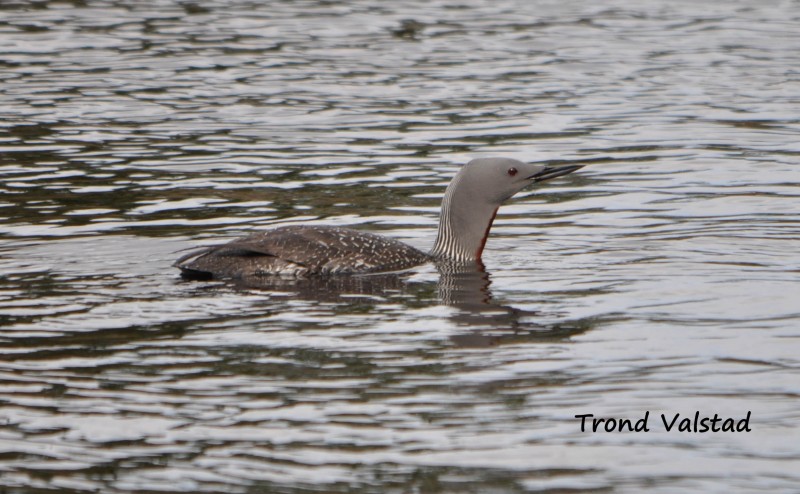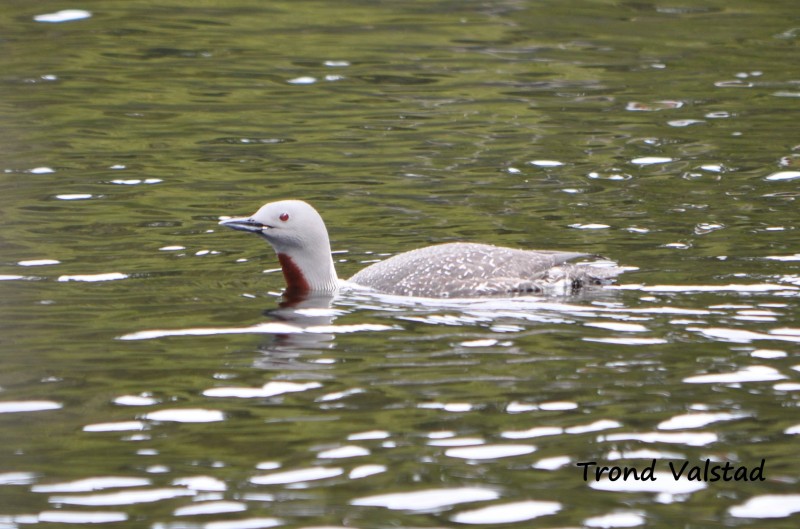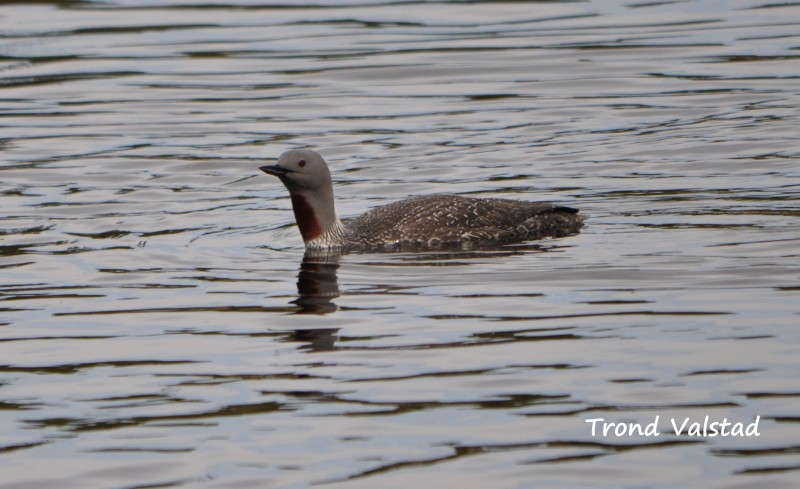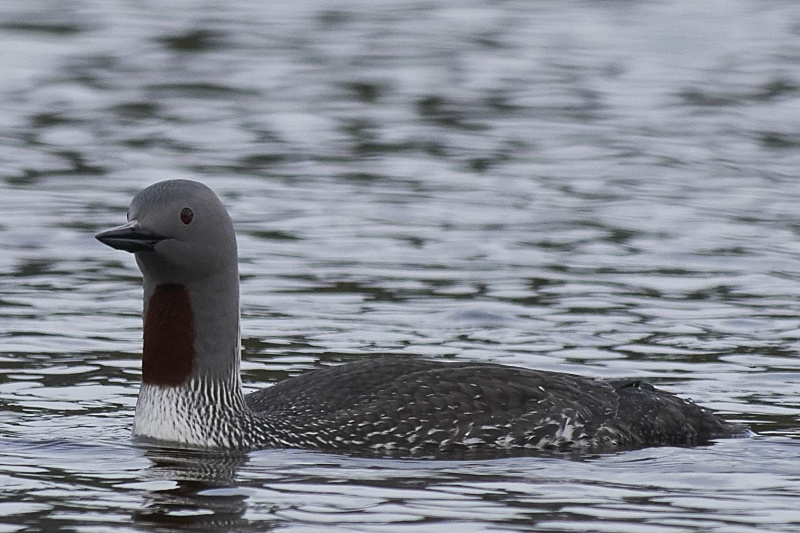Curlew Sandpiper (Calidris ferruginea)
Red-throated Loon (Gavia stellata)
Summer plumage: Warm, rufous brown below like Knot, but much smaller. Bill curved and much longer, and appearance more long-legged. Winter and juvenile plumage grey above and pale below. Differs from Dunlin in slightly longer legs and bill, more pronounced supercilium, no black patches on belly (some rufous summer feathers may show when moulting) and more upright stance. Juveniles with buff-pinkish tone to breast, and scaly upperparts. Always distinct in all plumages when flying, due to bright white and crescent-shaped rump-patch.
Sound:Flight call a soft, ringing and rolling "krrrrrt, with variations. Lacks the hoarse, nasal quality of similar call by Dunlin.
Contact call:
Distribution:
Wikipedia: map (se also Xeno-canto below)
Ecology:Birdlife ecology
Links:
Observation.org Latest observations
Image search Flickr NB! May give other species
CCCC-photo:Agustín Povedano, Licence,Link.
CC-photo:Ian N. White, Licence,Link.
Sounds:Creative Commons,www.xeno-canto.org ,Albert Lastukhin,http://creativecommons.org/licenses/by-nc-sa/4.0/
Summer: Red throat (seemingly black at a distance!). Lacks white vertical framing of throat patch and white spotted back of Black-throated Diver. Winter: Quite pale. White face and eye-ring. Just a narrow stripe of dark grey along the back of the neck. In all plumages best identified by posture and silhouette, especially when seen at a distance. Slender neck, head and bill. Flat chest. Usually shows no white flank patch. Bill usually held uptilted.
Sound:In flight; nasal, dry, gooselike series of rhythmic cackling "ko-ko-ko". Most vocal when courting and breeding. A meowing drawn-out sound starting with a register break, then falling in pitch. Display call a far reaching rolling cyclic cooing, given in long sequences.
Song/display:
Distribution:
Wikipedia: map (se also Xeno-canto below)
Ecology:Birdlife ecology
Links:
Observation.org Latest observations
Image search Flickr NB! May give other species
CC
 English
English Albanian
Albanian
 Armenian
Armenian
 Bulgarian
Bulgarian
 Catalan
Catalan
 Croatian
Croatian
 Czech
Czech
 Danish
Danish
 Dutch
Dutch
 Finnish
Finnish
 French
French
 Georgian
Georgian
 German
German
 Greek
Greek
 Hungarian
Hungarian
 Italian
Italian
 Latvian
Latvian
 Lithuanian
Lithuanian
 Macedonian
Macedonian
 Norwegian
Norwegian
 Polish
Polish
 Portuguese
Portuguese
 Romanian
Romanian
 Russian
Russian
 Sami : Lule sami
Sami : Lule sami
 Sami : North sami
Sami : North sami
 Sami : South sami
Sami : South sami
 Scientific names
Scientific names
 Serbian
Serbian
 Spanish
Spanish
 Swedish
Swedish
 Ukrainian
Ukrainian

